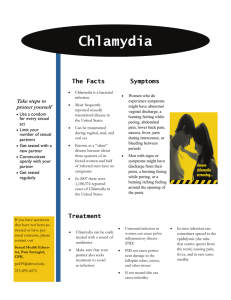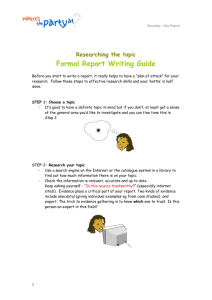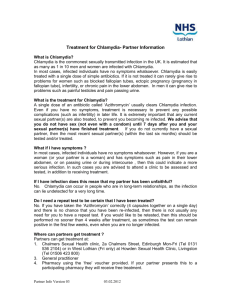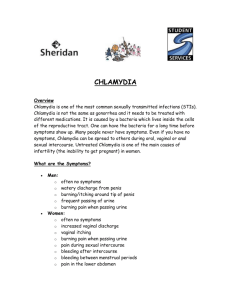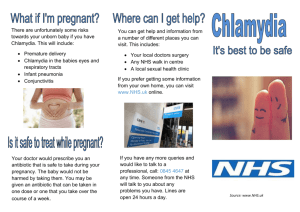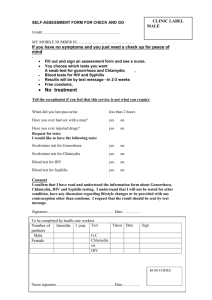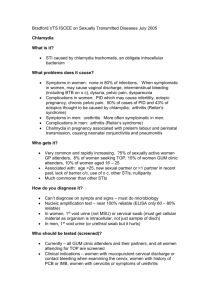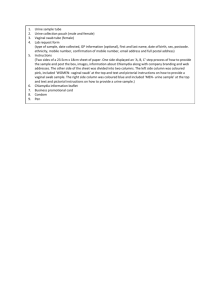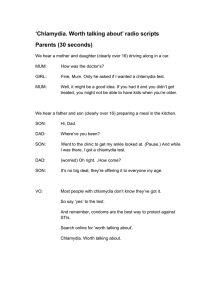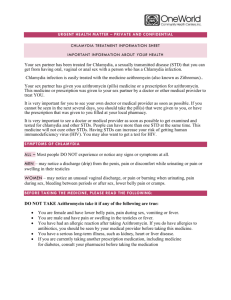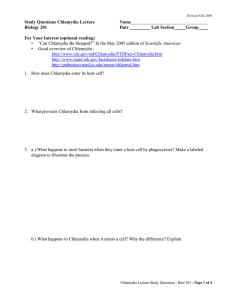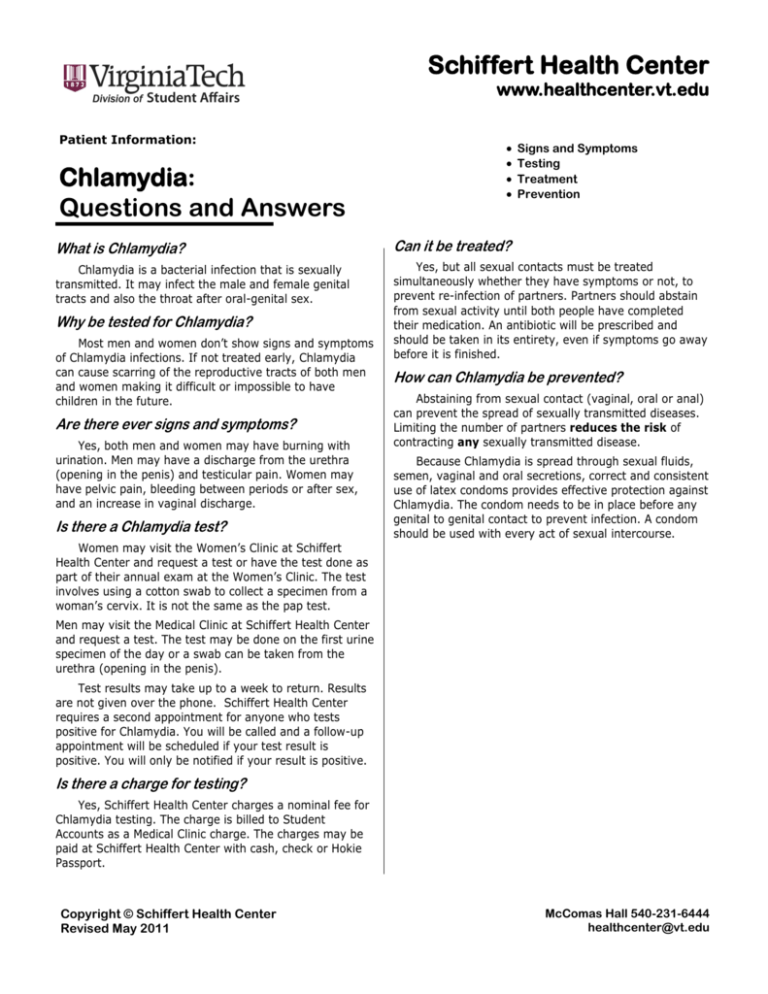
Schiffert Health Center
www.healthcenter.vt.edu
Patient Information:
Chlamydia:
Questions and Answers
Signs and Symptoms
Testing
Treatment
Prevention
What is Chlamydia?
Can it be treated?
Chlamydia is a bacterial infection that is sexually
transmitted. It may infect the male and female genital
tracts and also the throat after oral-genital sex.
Yes, but all sexual contacts must be treated
simultaneously whether they have symptoms or not, to
prevent re-infection of partners. Partners should abstain
from sexual activity until both people have completed
their medication. An antibiotic will be prescribed and
should be taken in its entirety, even if symptoms go away
before it is finished.
Why be tested for Chlamydia?
Most men and women don’t show signs and symptoms
of Chlamydia infections. If not treated early, Chlamydia
can cause scarring of the reproductive tracts of both men
and women making it difficult or impossible to have
children in the future.
Are there ever signs and symptoms?
Yes, both men and women may have burning with
urination. Men may have a discharge from the urethra
(opening in the penis) and testicular pain. Women may
have pelvic pain, bleeding between periods or after sex,
and an increase in vaginal discharge.
Is there a Chlamydia test?
Women may visit the Women’s Clinic at Schiffert
Health Center and request a test or have the test done as
part of their annual exam at the Women’s Clinic. The test
involves using a cotton swab to collect a specimen from a
woman’s cervix. It is not the same as the pap test.
How can Chlamydia be prevented?
Abstaining from sexual contact (vaginal, oral or anal)
can prevent the spread of sexually transmitted diseases.
Limiting the number of partners reduces the risk of
contracting any sexually transmitted disease.
Because Chlamydia is spread through sexual fluids,
semen, vaginal and oral secretions, correct and consistent
use of latex condoms provides effective protection against
Chlamydia. The condom needs to be in place before any
genital to genital contact to prevent infection. A condom
should be used with every act of sexual intercourse.
Men may visit the Medical Clinic at Schiffert Health Center
and request a test. The test may be done on the first urine
specimen of the day or a swab can be taken from the
urethra (opening in the penis).
Test results may take up to a week to return. Results
are not given over the phone. Schiffert Health Center
requires a second appointment for anyone who tests
positive for Chlamydia. You will be called and a follow-up
appointment will be scheduled if your test result is
positive. You will only be notified if your result is positive.
Is there a charge for testing?
Yes, Schiffert Health Center charges a nominal fee for
Chlamydia testing. The charge is billed to Student
Accounts as a Medical Clinic charge. The charges may be
paid at Schiffert Health Center with cash, check or Hokie
Passport.
Copyright © Schiffert Health Center
Revised May 2011
McComas Hall 540-231-6444
healthcenter@vt.edu

